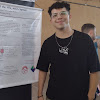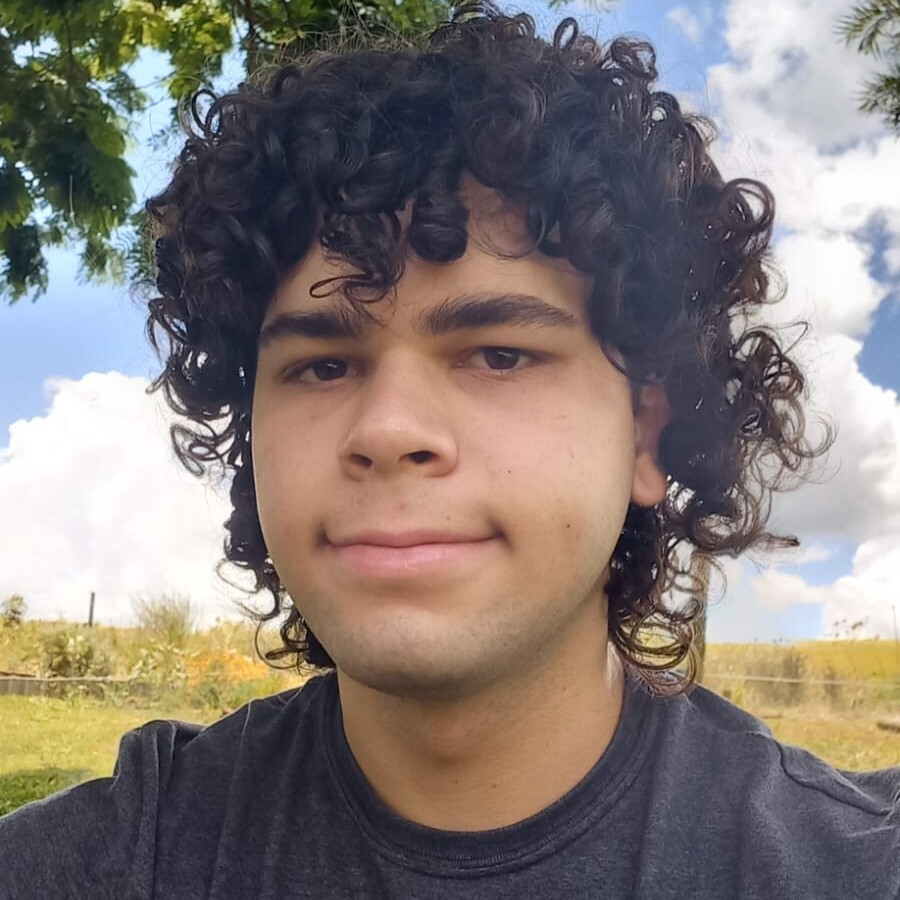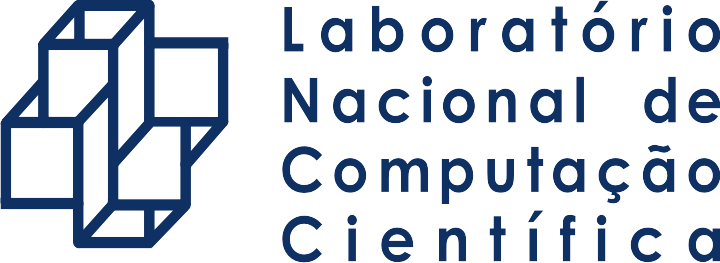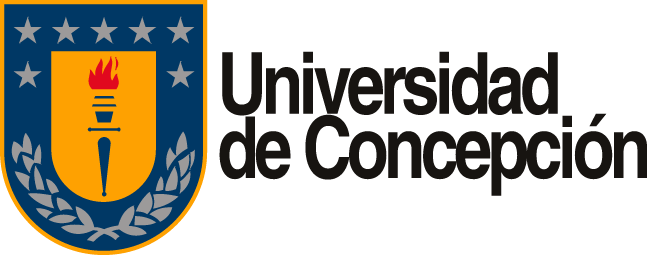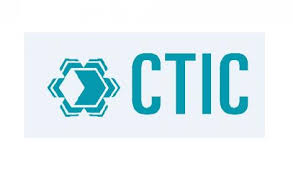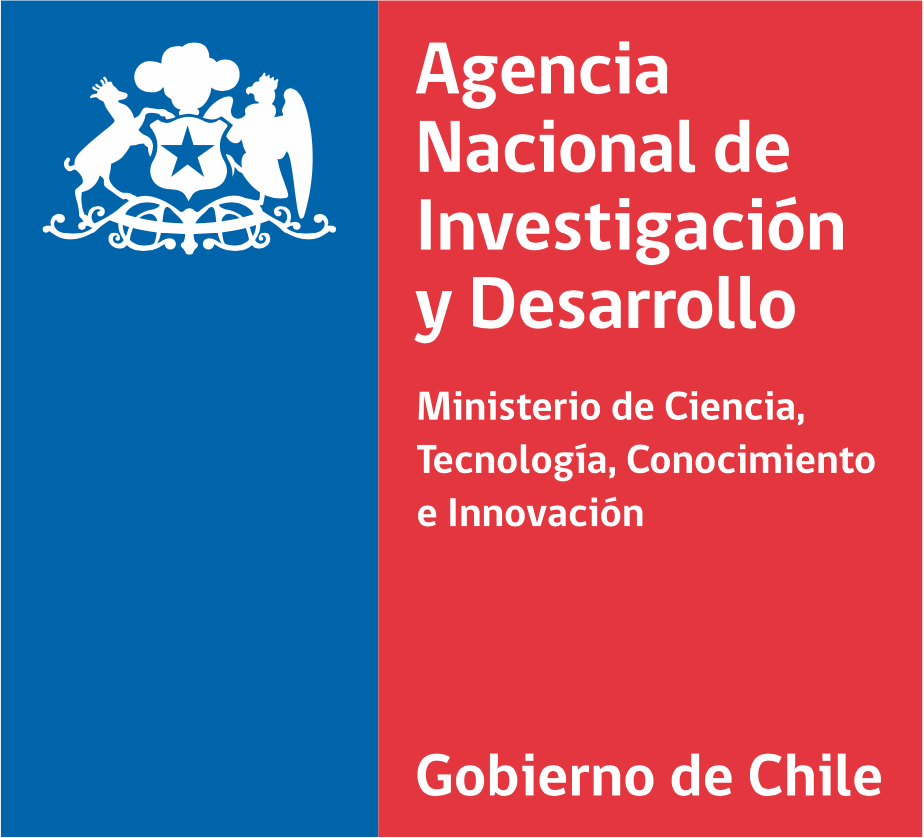MHM
Most of our developments on numerical simulators are based on the family of Multiscale Hybrid-Mixed (MHM) methods, which provides a multi-level strategy to approximate the solution of boundary value problems with heterogeneous coefficients.
HPC
We devise numerical simulators to run at scale, exploring massively parallel architectures and developing code with bleeding-edge technologies.
Machine learning
We explore machine learning techniques to predict resource consumption and to act as surrogates of numerical simulations.
Team
A multidisciplinary group with mathematicians, computer scientists and engineers.
LNCC
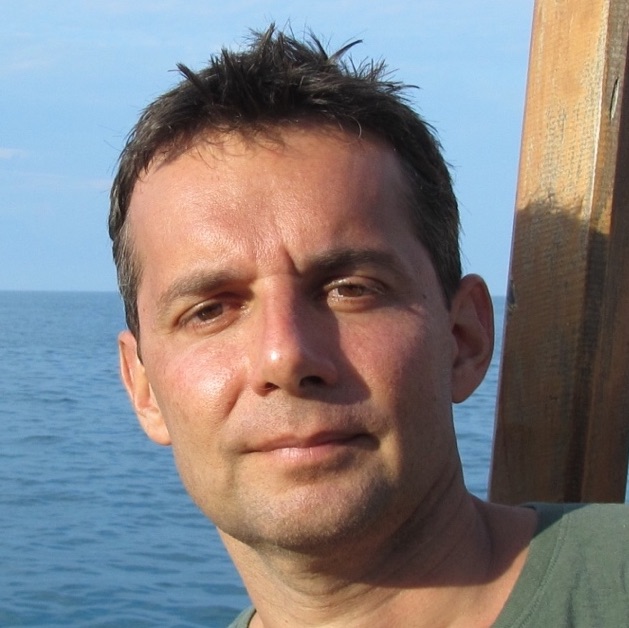
Frédéric Valentin
PhD in applied mathematics from the Sorbonne Universités - Paris VI (1999), France, and pos-doctoral from the University of Colorado at Denver (2006), USA, he holds a senior researcher position at the National Laboratory for Scientific Computing - LNCC (since 2012) where he led the Department of Computational and Mathematical Methods (2017-2021). Also, he held an INRIA International Chair from 2018 to 2023. His research lies in devising and analyzing innovative numerical methods and mathematical models for multiscale phenomena appearing in engineering and life science problems. His primary tools are partial differential equations, finite element methods, domain decomposition techniques, and numerical and asymptotic analysis. He is also interested in the implementation of numerical algorithms underlying multiscale numerical methods for the new generation of massively parallel architectures with machine learning techniques.
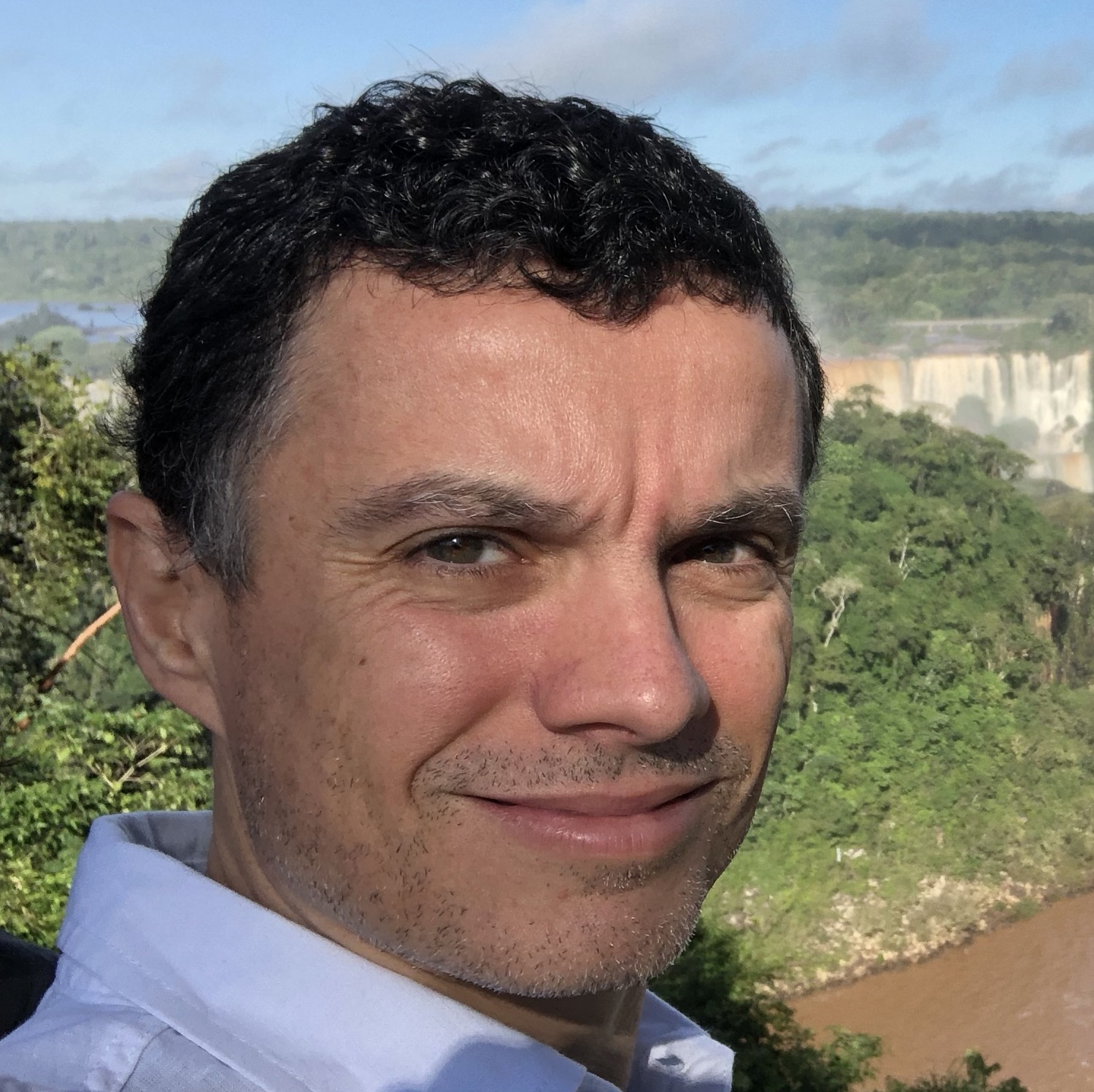
Antônio Tadeu Gomes
He is a researcher at the National Laboratory for Scientific Computing (LNCC) since 2005. He is currently the executive officer of the Brazilian National System for High-Performance Computing (SINAPAD), and coordinator of the Steering Committee of the Santos Dumont supercomputing facility (SDumont). He is also the current deputy coordinator of the LNCC's Graduate Program in Computational Modeling (PPG-LNCC). He received his Ph.D. in Computer Science from the Pontifical Catholic University of Rio de Janeiro (PUC-Rio), Brazil, in 2005. His main interests are in the broad area of systems modeling, encompassing networked systems, distributed systems, numerical simulation systems, high-performance computing systems, and machine learning systems. He is particularly interested in the investigation of software architecture techniques that tame the tension between programming productivity, performance optimization, and parallel computing in the development of scientific software. He is the main software architect of the MHM Set of Software Libraries (MSL) for implementing multiscale numerical simulators. He is a member of the Association for Computing Machinery (ACM) and the Brazilian Computer Society (SBC). He was recipient of the productivity research award PQ-2 from the Brazilian Research Council (CNPq) from 2010 to 2018.
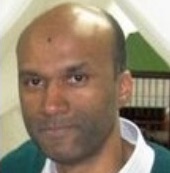
Roberto Souto
Researcher at the National Laboratory for Scientific Computing (LNCC), since 2013. He holds a degree in Computational Applied Mathematics (1997) from the Federal University of Rio Grande do Sul (UFRGS), Masters in Remote Sensing (2000) and Ph.D. in Applied Computing (2006) by the National Institute for Space Research (INPE). He works in the area of Computer Science, with emphasis on Scientific Computing, mainly on the following topics: high performance computing, parallel programming and massively parallel architectures.

Alexandre Madureira
Senior researcher at LNCC, and holds Ph.D. from PennState University. His research involves the mathematical analysis and development of computational models with applications in mechanics, economics and life science. One of his interests is the development of massively parallel numerical schemes for PDEs using finite element methods.
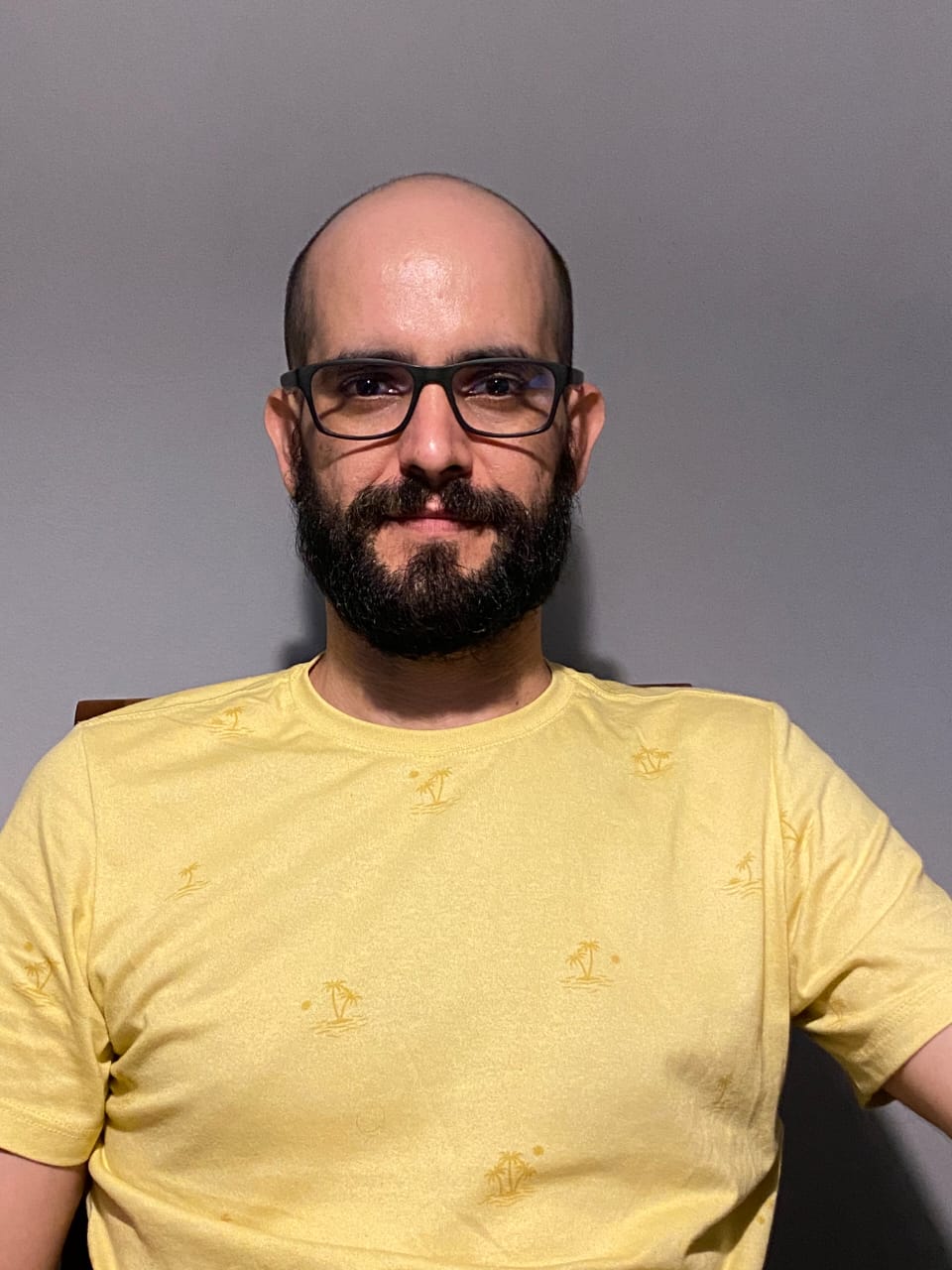
Leonardo Fagundes de Mello
Bachelor’s in Computer Engineering from the Federal University of Rio Grande (FURG). M.Sc. and Ph.D. in Computational Modeling from the National Laboratory for Scientific Computing (LNCC), with the Ph.D. completed in 2022. Currently a postdoctoral fellow at LNCC and a member of the Innovative Parallel Numerical Solvers (IPES) team. Research focuses on integrating advanced numerical methods, such as p-adaptive hybrid finite elements, with Physics-Informed Neural Networks (PINNs) for simulating fluid flow and wave propagation in complex geometries. Passionate about Scientific Software Development, with core interests in Numerical Analysis, PINNs, Neural Operators, and their intersection with computational science.

Larissa Martins
Bachelor of Mathematics with an emphasis on Computational Mathematics from Federal University Fluminense (UFF - 2017) and master's degree in Computational Modeling from LNCC (2019). Experience in monitoring pure mathematics subjects. Advanced English. From 2018 to 2020 worked on a technical-scientific project Parallelization and Analysis of Accuracy, Performance and Applicability in Simulators based on Finite Element Methods (PADEF). Winner of SBMAC Odelar Leite Linhares award (2021). Currently a doctorate student in Computational Modeling at LNCC.

Larissa Miguez
Bachelor of Mathematics with an emphasis on Computational Mathematics from Federal University Fluminense (UFF) in 2017, where she worked in the areas of statistics and probability. Master's degree in Computational Modeling in UFF, studying Tumor Growth Models, working mainly in the areas of Mathematics and Computational Models. Also at UFF, she played the role of Tutor of Calculus I. Currently, doctorate student at the LNCC where she started working on machine learning applied to MHM-based surrogate models.
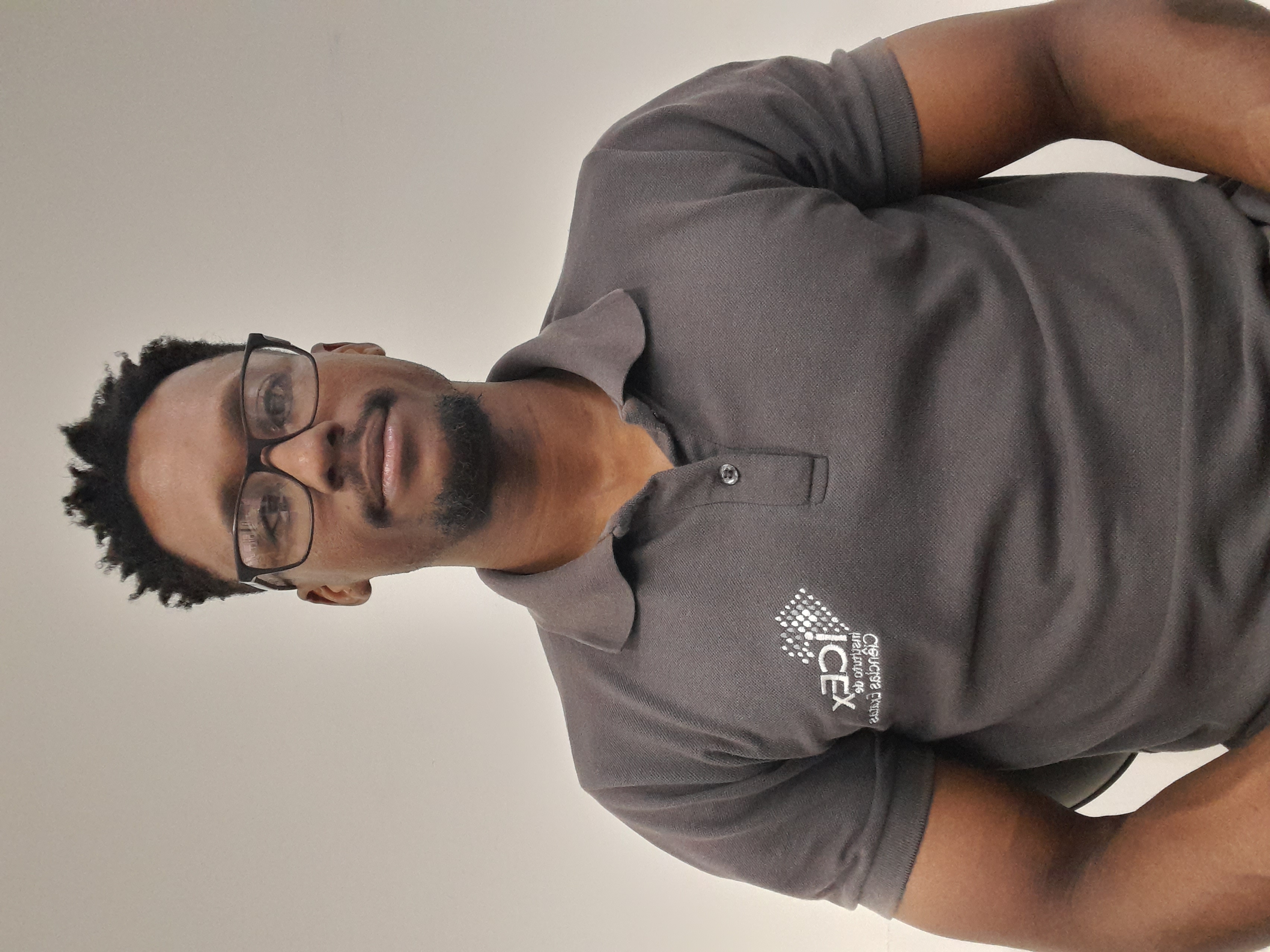
Franklin da Conceição de Barros
PhD candidate in Computational Modeling at the National Scientific Computing Laboratory - LNCC, since 2023. Master in Computational Modeling at the National Scientific Computing Laboratory / LNCC. Bachelor's degree in Mathematics with an emphasis on Computational Mathematics from the Institute of Exact Sciences of the Universidade Federal Fluminense / ICEX-UFF.
External Collaborators
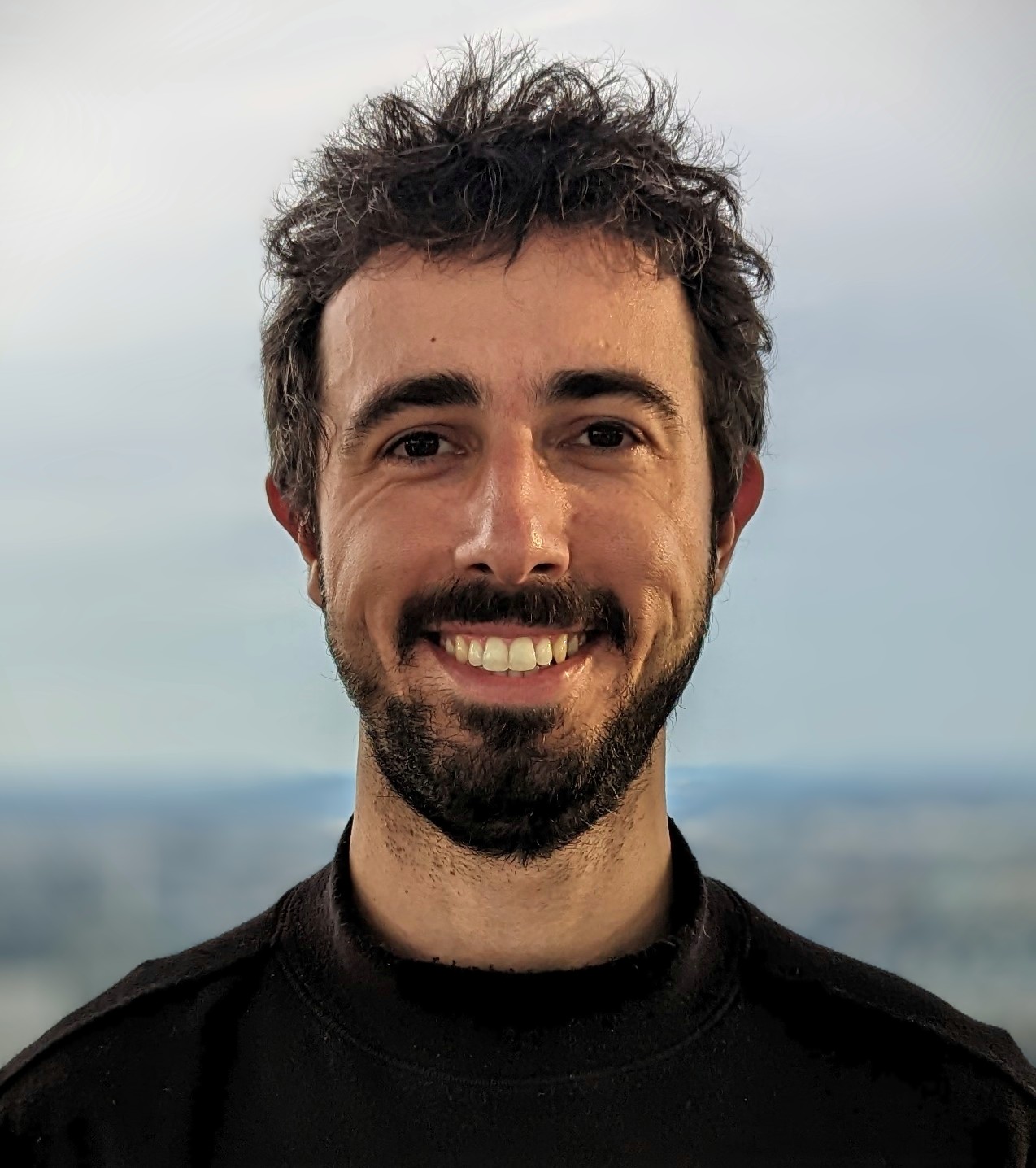
Weslley da Silva Pereira (University of Colorado Denver)
External collaborator of the IPES Research group, and Research Associate at the University of Colorado Denver. Master in Mathematics (2015) from Universidade Federal de Juiz de Fora, and D.Sc. in Computational Modeling (2019) from Laboratório Nacional de Computação Científica (LNCC). Passionate about Applied Mathematics and Scientific Software Development, with extensive experience in Numerical Analysis and in developing numerical software. Maintainer of the Netlib BLAS, LAPACK and ScaLAPACK libraries; designer and developer of <T>LAPACK, a new numerical linear algebra library based on modern C++. His research is on (1) MHM methods for linear elasticity and elastodynamics; (2) improvements in the MHM methods; and (3) numerical linear algebra software and standards.
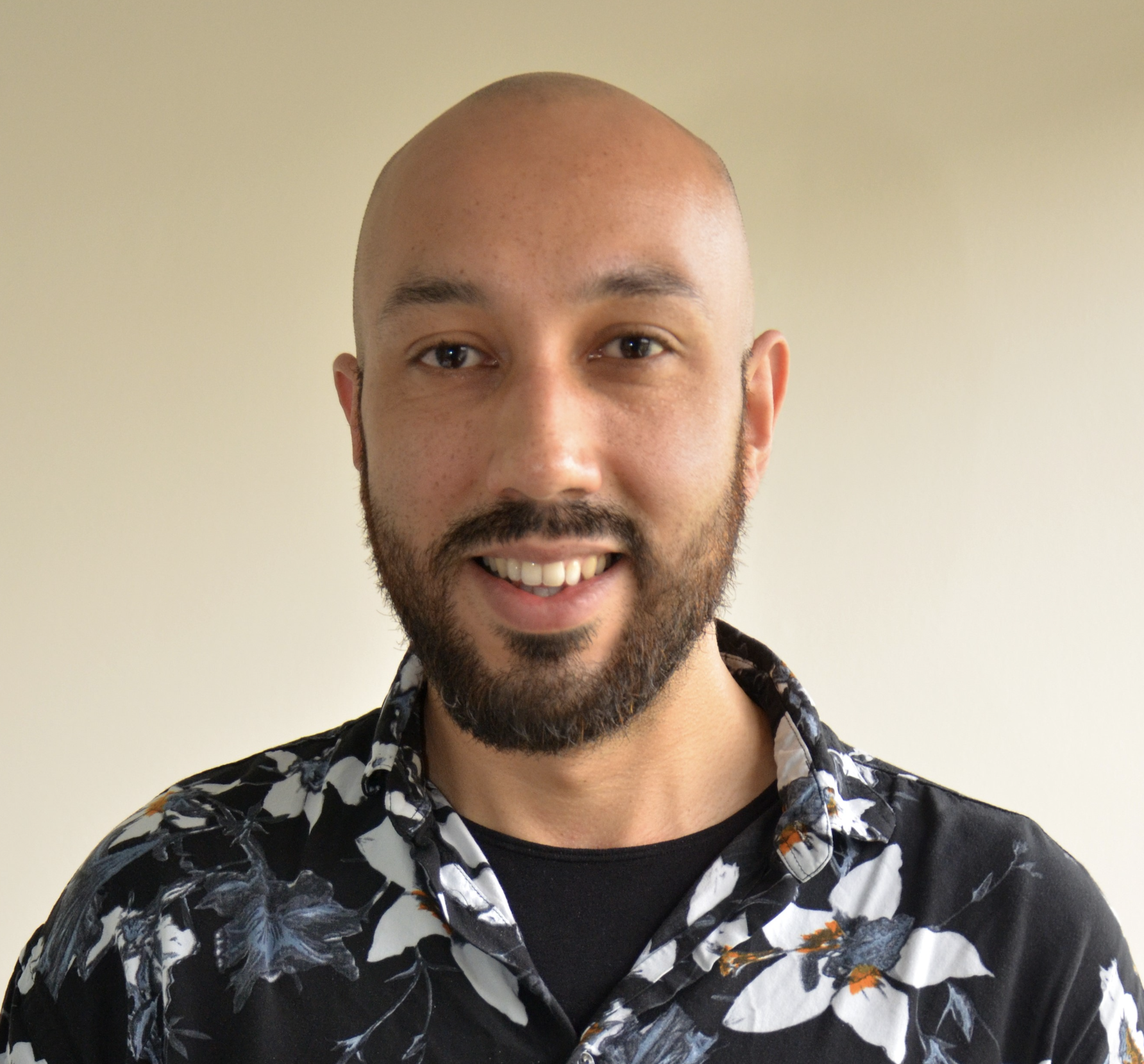
Diego Paredes (Universidad de Concepción)
External collaborator of the IPES Research group, Assistant Professor at the Mathematical Engineering Department (DIM), and Researcher at the Center for Research in Mathematical Engineering (CI²MA), both based in the University of Concepción (UDEC), Chile. He received his D.Sc. in Computational Modelling from the National Laboratory for Scientific Computing (LNCC) in 2013, then obtained a post-doctoral position at the same institute and later at the National Institute for Research in Computer Science and Automation (INRIA). From 2014 to 2018, he worked at the Institute of Mathematics (IMA) of the Pontifical Catholic University of Valparaiso (PUCV), Chile. His research is focused on development, mathematical analysis, and efficient computational implementation of numerical methods. He is particularly interested in proposing new numerical schemes to solve multiscale problems related to fluid flow in porous media and wave propagation models.
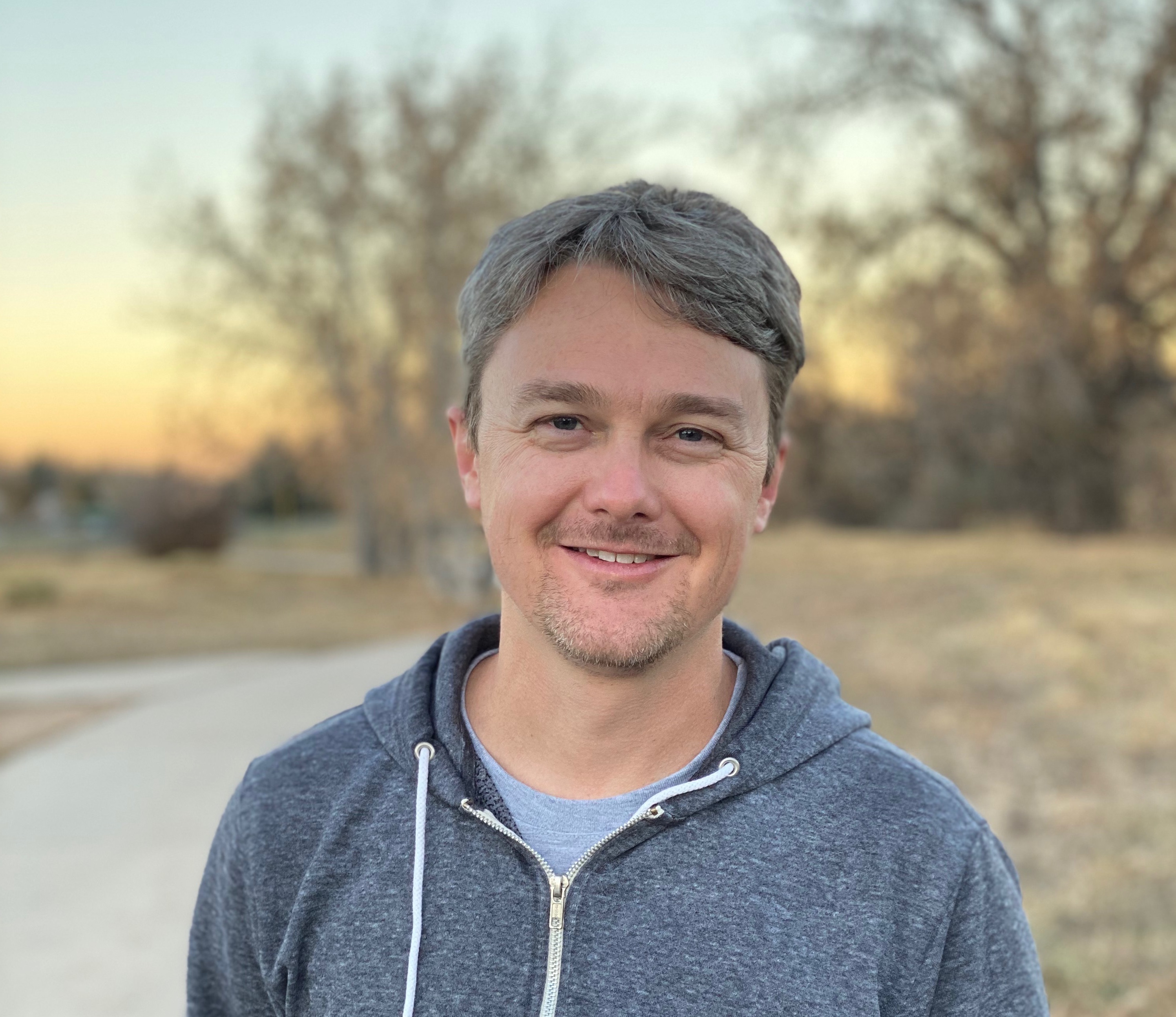
Christopher Harder (Metropolitan State University of Denver)
Currently an Associate Professor at Metropolitan State University of Denver, Chris completed his Ph.D. in Applied Mathematics at the University of Colorado Denver. He spent two years working as a post-doc at LNCC working on finite element methods suitable for massively parallel architectures. His interests include partial differential equations, multiscale finite element methods, and domain decomposition methods.
Other collaborators
CEFET-RJ, Brazil: Eduardo Ogasawara
Inria Bordeaux, France: Francieli Zanon-Boito, Laércio Pilla
Inria Saclay, France: Aline Carneiro Viana
Inria Sophia-Antipolis, France: Stephane Lanteri, Claire Scheid, Théophile Chaumont
IUT-Lyon, France: Fabrice Jaillet
LIG-UGA, France: Jean-François Méhaut
UdeC, Chile: Rodolfo Araya
UFMG, Brazil: Henrique Versieux
UFF, Brazil: Honório Fernando
UNICAMP, Brazil: Sonia Gomes, Philippe Devloo
UStrathclyde, UK: Gabriel Barrenechea
WPI, US: Marcus Sarkis
Alumni
Aaron Bruno Leão (D.Sc., LNCC, 2022)
João Victor Caccavo Wanderley (B.Sc., UFRJ, --)
Juan Humberto Leonardo Fabian (D.Sc. LNCC, 2022)
Julio César David da Fonseca (D.Sc. USP, 2016)
Lucas Prett (M.Sc. UFF, 2019)
Mateus Silva de Melo (B.Sc., UNESA, 2016)
Projects
Contributing to the advancement of science and technology, and to transferring knowledge to industry.
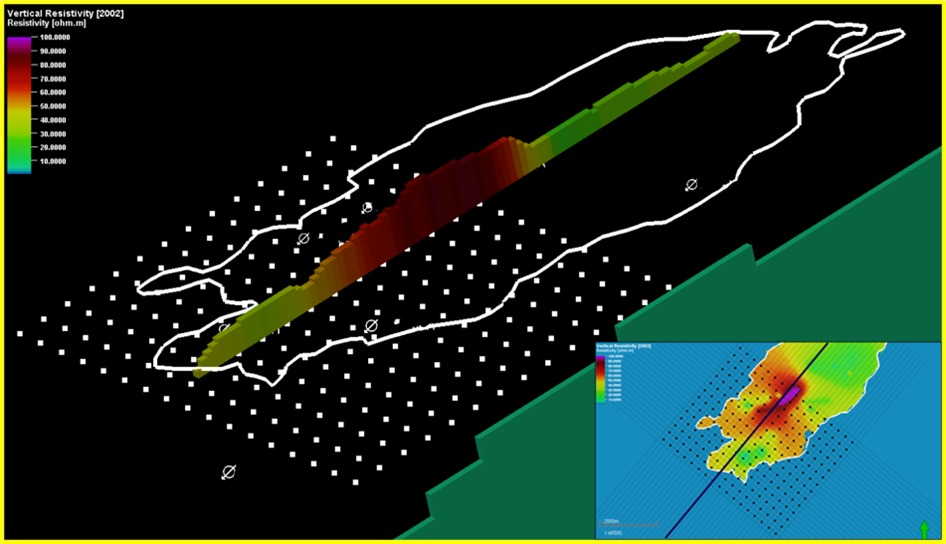
INVMULTIFIS: Development of multi-physics data inversion software with optimization via artificial intelligence (2022-2025)
The project proposes the development of an innovative inversion technology for the characterization and monitoring of deep water reservoirs for Petrobras (the Brazilian Oil Company) using CSEM (Controlled-Source Electromagnetic Methods), a robust risk reduction tool in the drilling of oil basins, using multiphysics data in the 3D domain. One of the main objectives of this project is to develop, optimize and parallelize CSEM codes, aiming at improving their performance. The construction of inversion algorithms will be also performed, such as Deep Neural Networks (DNNs) trained to transform CSEM data into models.

EOLIS: Efficient Off-LIne numerical Strategies formulti-query problems (2021-2023)
Project involving Inria, represented by Théophile Chaumont from the Atlantis Project-Team, LNCC with the PI Frederic Valentin and UdeC (Universidad de Concepcion, Chile) featuring the researcher Manuel Solano. This project targets multi-query problems that involve the solution of a parametrized boundary value problem (BVP) for a set of parameters. Notable examples include parameter identification, optimal design and uncertainty quantification, each having concrete applications.
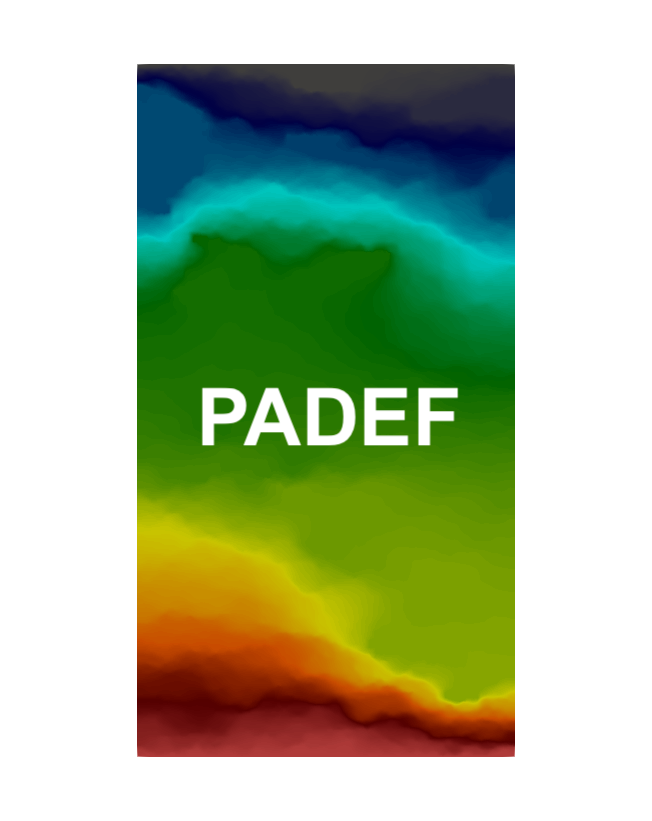
PADEF: Parallelism and Analysis of Accuracy, Performance and Applicability in Simulators based on Finite Element Methods (2018-2020)
This project aims at refactoring simulation software from Petrobras (the Brazilian Oil Company) in order to improve quality attributes related to its functionality and interoperability with other systems, as well as its performance in parallel architectures. It also proposes the integration of the family of MHM methods within this software.

PHOTOM: Photovoltaic Solar Devices in Multiscale Computational Simulations (2018-2020)
This project aims at developing, analyzing and performing parallel implementations of innovative multiscale finite element methods for wave propagation models in grating media motivated by its use in the simulation of photovoltaic solar cells. This two-year international collaboration involves universities and research laboratories from Brazil, Chile, and France.

HPC4e: High-Performance Computing for Energy (2016-2019)
This project aimed to apply the new exascale HPC techniques to energy industry simulations, customizing them, and going beyond the state-of-the-art in the required HPC exascale simulations for different energy sources: wind energy production and design, efficient combustion systems for biomass-derived fuels (biogas), and exploration geophysics for hydrocarbon reservoirs. FUNDING FROM THE EUROPEAN UNION'S HORIZON 2020 PROGRAMME (2014-2020) AND FROM BRAZILIAN MINISTRY OF SCIENCE,TECHNOLOGY AND INNOVATION THROUGH REDE NACIONAL DE PESQUISA (RNP) UNDER THE HPC4E PROJECT (https://hpc4e.bsc.es/), GRANT AGREEMENT N° 689772.

HOMAR: High-performance Multiscale Algorithms for wave pRopagation problems (2015-2018)
The main scientific goals of this collaboration were: (i) to design and analyze new MHM methods for the system of time-domain Maxwell equations coupled to models of physical dispersion, in view of their application to light interaction with nanometer-scale structures; (ii) to design and analyze new MHM methods for the system of time-domain elastodynamic equations for modeling elastic wave propagation in anisotropic media; (iii) to devise appropriate discrete versions of the proposed MHM methods using DG (Discontinuous Galerkin) formulations for the discretization of the local solvers, and to study the mathematical properties (stability, convergence) of the combined MHM-DGTD strategies.

HOSCAR: High performance cOmputing and SCientific dAta management dRiven by highly demanding applications (2013-2015)
The HOSCAR project is a CNPq - INRIA collaborative project between Brazilian and French researchers, in the field of computational sciences. The project was also sponsored by the French Embassy in Brazil. The general objective of the project was to setup a multidisciplinary Brazil-France collaborative effort for taking full benefits of future high-performance massively parallel architectures. The targets were the very large-scale datasets and numerical simulations relevant to a selected set of applications in natural sciences: (i) resource prospection, (ii) reservoir simulation, (iii) ecological modeling, (iv) astronomy data management, and (v) simulation data management. The project involved computer scientists and numerical mathematicians divided in 3 fundamental research groups: (i) numerical schemes for PDE models (Group 1), (ii) scientific data management (Group 2), and (iii) high-performance software systems (Group 3).
Publications
High-impact research and developement results, and associated training of human resources with a strong multidisciplinary character.
Journals
2024
- Araya, R.; Harder, C.; Poza, A.H.; Valentin, F. Multiscale Hybrid-Mixed Methods for the Stokes and Brinkman Equation -- A Priori Analysis. To appear in SIAM Journal on Numerical Analysis, 2024.
- Barrenechea, G.R.; Gomes, A.T.A.; Paredes, D. A Multiscale hybrid method. SIAM Journal on Scientific Computing (SISC), 46(3):A1628-A1657, 2024.
- Paredes, D.; Valentin, F.; Versieux, H. M. Revisiting the robustness of the multiscale hybrid-mixed method: The face-based strategy. Journal of Computational and Applied Mathematics, 436:115415, 2024.
- Araya, R.; Jaillet, F.; Paredes, D.; Valentin, F. Generalizing the Multiscale Hybrid-Mixed Method for Reactive-Advective-Diffusive Equations. Computer Methods in Applied Mechanics and Engineering, 428:117089, 2024.
Previous years
- Fernando, H.; Martins, L.; Pereira, W.; Valentin, F. A petrov–galerkin multiscale hybrid-mixed method for the darcy equation on polytopes. Computational and Applied Mathematics, 42(4):173, 2023.
- Chaumont-Frelet, T.; Ern, A.; Lemaire, S.; Valentin, F. Bridging the multiscale hybrid-mixed and multiscale hybrid high-order methods. ESAIM: M2AN, 56(1):261–285, 2022.
- Gomes, A. T. A.; Pereira W.; Valentin, F. The MHM Method for Linear Elasticity on Polytopal Meshes. IMA Journal of Numerical Analysis, 2022.
- Madureira, Alexandre L.; Sarkis, Marcus. Hybrid Localized Spectral Decomposition for Multiscale Problems. SIAM JOURNAL ON NUMERICAL ANALYSIS, v. 59, p. 829-863, 2021.
- Devloo, P. R. B.; Farias, A. M.; Gomes, S. M.; Pereira, W.; Santos, J. B.; Valentin, F. New H(div)-conforming multiscale hybrid-mixed methods for the elasticity problem on polygonal meshes. ESAIM: Math. Model. Num. Anal. 55(3):1005-1037, 2021.
- Araya, R.; Cárcamo, C.; Poza, A. H.; Valentin, F. An adaptive multiscale hybrid-mixed method for the Oseen equations. Adv. Comput. Math. 47(15), 2021.
- Araya, R.; Rebolledo, R.; Valentin, F. On a multiscale a posteriori error estimator for the stokes and Brinkman equations. IMA J. Numer. Anal. 41(1):344–380, 2021.
- Gomes, A.T.A.; Molion, E.; Souto, R.P.; Méhaut, J.F. Memory allocation anomalies in high-performance computing applications: A study with numerical simulations. CONCURRENCY AND COMPUTATION-PRACTICE & EXPERIENCE. p.e6094 - , 2020.
- Barrenechea, G.; Jaillet, F.; Paredes, D.; Valentin, F. The multiscale hybrid mixed method in general polygonal meshes. Numer. Math., 145:197–237, 2020.
- Chaumont-Frelet, T.; Valentin, F. A multiscale hybrid-mixed method for the helmholtz equation in heterogeneous domains. SIAM J. Numer. Anal., 58(2):1029–1067, 2020.
- Penna, P.; Gomes, A.T.A.; Castro, M.; Plentz, P.; Freitas, H.; Broquedis, F.; Méhaut, J.F. A comprehensive performance evaluation of the BinLPT workload-aware loop scheduler. CONCURRENCY AND COMPUTATION-PRACTICE & EXPERIENCE. p.e5170 - , 2019.
- Lanteri, S.; Paredes, D.; Scheid, C.; Valentin, F. The multiscale hybrid-mixed method for the Maxwell equations in heterogeneous media. SIAM Multiscale Model. Simul., 16(4):1648–1683, 2018.
- Paredes, D.; Valentin, F.; Versieux, H. M. On the robustness of multiscale hybrid-mixed methods. Math. Comp., 86(304):525–548, 2017.
- Harder, C.; Madureira, A.; Valentin, F. A hybrid-mixed method for elasticity. ESAIM: Math. Model. Num. Anal., 50(2):311–336, 2016.
- Harder C.; Valentin, F. Foundations of the MHM method. In G. R. Barrenechea, F. Brezzi, A. Can- giani, and E. H. Georgoulis, editors, Building Bridges: Connections and Challenges in Modern Approaches to Numerical Partial Differential Equations, Lecture Notes in Computational Science and Engineering. Springer, 2016.
- Harder, C.; Paredes, D.; Valentin, F. On a multiscale hybrid-mixed method for advective-reactive dominated problems with heterogenous coefficients. SIAM Multiscale Model. and Simul., 13(2):491–518, 2015.
- Harder, C.; Paredes, D.; Valentin, F. A family of multiscale hybrid-mixed finite element methods for the Darcy equation with rough coefficients. J. Comput. Phys., 245:107–130, 2013.
- Araya, R.; Harder, C.; Paredes, D.; Valentin, F. Multiscale hybrid-mixed method. SIAM J. Numer. Anal., 51(6):3505–3531, 2013.
Conference papers
2024
- Gomes, A.T. A.; da Silva, L. M.; Valentin, F. Interplay of Physics-Informed Neural Networks and Multiscale Numerical Methods. Proceedings Series of the Brazilian Society of Computational and Applied Mathematics (CNMAC 2024), 2024
- Gomes, A.T. A.; da Silva, L. M.; Fonseca, J.; Valentin, F. Multiscale Numerical Methods and Their Interplay with Artificial Intelligence. ECCOMAS 2024, Lisbon 3rd-7th June, 2024
Previous years
- Lima, R.T.; de Souza, M.F.L.; Souto, R.P.; Gomes, A.T.A.; Labruzzo, T.; Zerilli, A. Perfil de desempenho e oportunidades de otimização da implementação do método CSEM 3D. In: Escola Regional de Alto Desempenho do Rio de Janeiro, 2023, Brasil. Anais da VIII Escola Regional de Alto Desempenho do Rio de Janeiro (ERAD-RJ 2023), 2023. p. 26.
- de Souza, M.F.L.; Lima, R.T.; Souto, R.P.; Gomes, A.T.A.; Labruzzo, T.; Zerilli, A. Avaliação de desempenho de implementação paralela do método CSEM 3D no supercomputador Santos Dumont. In: Escola Regional de Alto Desempenho do Rio de Janeiro, 2023, Brasil. Anais da VIII Escola Regional de Alto Desempenho do Rio de Janeiro (ERAD-RJ 2023), 2023. p. 29.
- Boito, F.; Gomes, A.T.A.; Peyrondet, L. Teylo, L. I/O Performance of Multiscale Finite Element Simulations on HPC environments. In: 2022 International Symposium on Computer Architecture and High Performance Computing Workshops (SBAC-PADW), 2022, Bordeaux, FR. Proceedings of the 34th SBAC-PAD Workshops, 2022. p. 9-16.
- Gomes, A. T. A. ; da Silva, L. M. ; Valentin, F. Improving Boundary Layer Predictions Using Parametric Physics-Aware Neural Networks. In: Latin America High Performance Computing Conference (CARLA), 2022, Porto Alegre, BR. Proceedings of the 9th Latin America High Performance Computing Conference (CARLA2022), 2022.
- Fabian, J. H. L. ; Gomes, A. T. A. ; Ogasawara, E. NAZCA: a machine-learning based methodology for performance prediction and configuration recommendation of multiscale numerical simulations. In: Encontro Acadêmico de Modelagem Computacional (EAMC), 2022, Petrópolis, RJ. Anais do XV EAMC. Petrópolis, RJ: Laboratório Nacional de Computação Científica (LNCC), 2022. v. 1. p. 104-113.
- Madureira, A.; Sarkis, M. Robust Model Reduction Discretizations Based on Adaptive BDDC Techniques. In: Domain Decomposition Methods in Science and Engineering XXV. Lecture Notes in Computational Science and Engineering 158. pp. 41–52, 2020.
- Fabian, J. H. L. ; Gomes, A. T. A. ; Ogasawara, E. Estimating the execution time of the coupled stage in multiscale numerical simulations. In: Latin America High Performance Computing Conference (CARLA), 2020, Cuenca, EQ. Proceedings of the 7th Latin America High Performance Computing Conference (CARLA2020), 2020.
- Fabian, J. H. L. ; Gomes, A. T. A. ; Ogasawara, E. Estimating the execution time of fully-online multiscale numerical simulations. In: Simpósio em Sistemas Computacionais de Alto Desempenho (WSCAD), 2020, Santo André, SP. Anais do XXI Simpósio em Sistemas Computacionais de Alto Desempenho (WSCAD2020). Porto Alegre, RS: SBC, 2020.
- Gomes, A. T. A.; Molion, E.; Méhaut, J.F.; Souto, R.P. Identification and Characterization of Memory Allocation Anomalies in High-Performance Computing Applications. In: Simpósio Brasileiro de Sistemas Computacionais de Alto Desempenho (WSCAD), 2019, Campo Grande, MS. Anais do XX Simpósio Brasileiro de Sistemas Computacionais de Alto Desempenho (WSCAD 2019). Porto Alegre, RS: SBC, 2019. v. 1. p. 1-12.
- Gomes, A.T.A.; Zillmer, F. Avaliação de desempenho de um simulador numérico distribuı́do e tolerante a falhas baseado no modelo de atores. In: Workshop em Clouds e Aplicações (WCGA), 2018, Campos do Jordão, SP. Anais do XVI Workshop em Clouds e Aplicações (WCGA 2018). Porto Alegre, RS: SBC, 2018.
- Gomes, A.T.A.; Zillmer, F. Experimentos no uso do modelo de atores para simulações numéricas distribuídas baseadas em elementos finitos. In: Workshop de Computação em Clouds e Aplicações (WCGA), 2017, Belém-PA. Anais do XV Workshop de Computação em Clouds e Aplicações (WCGA 2017). Porto Alegre-RS: SBC, 2017. p. 144-157.
- Gomes, A.T.A.; Paredes, D.; Pereira, W.S.; Souto, R.P.; Valentin, F. Performance analysis of the MHM simulator in a petascale machine. In: XXXVIII IberianLatin American Congress on Computational Methods in Engineering, 2017, Florianopolis, 2017.
- Gomes, A.T.A.; Paredes, D.; Pereira, W.S.; Souto, R.P.; Valentin, F. A Multiscale Hybrid-Mixed Method for the Elastodynamic Model with Rough Coefficients. In: XXXVIII IberianLatin American Congress on Computational Methods in Engineering, 2017, Florianopolis, 2017.
- Paszynski, M.; Gomes, A.T.A. A wrapper around parallel MUMPS solver to reduce its memory usage and execution time for finite element method computations. PROCEDIA COMPUTER SCIENCE, v. 108, p. 838-847, 2017.
- Gomes, A.T.A.; Paredes, D.; Valentin, F. Supporting the Perpetuation and Reproducibility of Numerical Method Publications. Procedia Computer Science. , v.4, p.688 - 696, 2011.
PhD Theses
- Lucas Martins Rocha. The Multiscale Hybrid Mixed Method for Parabolic Problems. 2023.
- Juan Humberto Leonardo Fabian. NAZCA: a machine learning based framework for performance prediction and configuration recommendation of multiscale numerical simulations. 2022.
- Weslley Pereira. Multiscale Hybrid-Mixed Methods for Heterogeneous Elastic Models. 2019.
- Franklin Zillmer. A Fault-Tolerant Framework Based on the Actor Model for the Numerical Solution of Differential Equations. 2019.
- Diego Fabian Paredes Concha. New Multiscale Finite Element Methods: Theory and Applications. 2013.
Master Theses
- Franklin da Conceição de Barros. Um método de elementos finitos híbridos. 2021.
- Larissa Martins. A Petrov-Galerkin Multiscale Hybrid-Mixed method for the Darcy Equation on Polytope. 2019.
Preprints
2024
- Gomes, A.T.A.; Pereira, W.; Valentin, F. A low-order locking-free multiscale finite element method for isotropic elasticity. 2024.
Previous years
- Araya, R.; Jaillet, F.; Paredes, D.; Valentin, F. Generalizing the multiscale hybrid-mixed method for reactive-advective-diffusive equations. 2023.
- Barrenechea, G.R.; Gomes, A.T.A.; Paredes, D. A Multiscale hybrid method. 2022.
- Fernando, H.; Martins, L.; Pereira, W.; Valentin, F. A Petrov-Galerkin multiscale hybrid-mixed method for the darcy equation on polytopes. 2022.
- Paredes, D.; Valentin, F.; Versieux, H. Revisiting the robustness of the multiscale hybrid-mixed method: The face-based strategy. 2022.
- Chaumont-Frelet, T.; Paredes, D.; Valentin, F. Flux approximation on unfitted meshes and application to multiscale hybrid-mixed methods. 2022.
- Boito, F.; Gomes, A.T.A.; Peyrondet, L. Teylo, L. I/O Performance of Multiscale Finite Element Simulations on HPC environments. 2022.
- Gomes, A.T.A.; da Silva, L.M.; Valentin, F. Physics-Aware Neural Networks for Boundary Layer Linear Problems. 2022.
- Gomes, A.T.A.; Pereira, W.S.; Valentin, F. The MHM Method for Elasticity on Polytopal Meshes. 2020.
- Gomes, A.T.A.; Pereira, W.S.; Valentin, F.; Paredes, D. On the Implementation of a Scalable Simulator for Multiscale Hybrid-Mixed Methods. 2017.
Courses
Training of human resources with a strong multidisciplinary character.
Regular courses
- Numerical Analysis of Finite Elements.
- Architecture, Design and Implementation of Software-Intensive Systems.
- Data Structures.
- Algorithms.
Minicourses
2025
- Gomes, A.T.A.; Mello, L.; Valentin, F. MC-06: Physics-Informed Machine Learning: Theory and Practice (LNCC Summer School - February/2025).
Previous years
- Gomes, A.T.A.; Valentin, F. MC-A06: Physics-Informed Machine Learning: Theory and Practice (LNCC Summer School - February/2024).
- Valentin, F.; Gomes, A.T.A. The Multiscale Hybrid-Mixed Finite Element Method: Origin, Theory and Practice (L'École Doctorale en Sciences Fondamentales et Appliquées – Université Côte d’Azur, January/2023).
- Valentin, F.; Gomes, A.T.A.; Pereira W.S. MC-A03: The MHM Method: Theory and Practice (LNCC Summer School - February/2022).
- Valentin, F.; Gomes, A.T.A.; Pereira W.S. MC-A06: The MHM Method: Theory and Practice (LNCC Summer School - February/2021).
- Valentin, F.; Gomes, A.T.A.; Pereira W.S. MC-A: Multiscale Methods: Theory and Practice (LNCC Summer School - March/2020).
Invited Talks and Keynotes
2024
Previous years
- Antônio Tadeu Gomes, Scientific Software Development: A Supercomputing Perspective, Regional High Performance School of Rio de Janeiro (ERAD-RJ 2023), 22/June/2023.
- Antônio Tadeu Gomes, A Physics-Informed Neural Network for Time-Dependent Maxwell Equations, HPC and Data Sciences meet Scientific Computing, Latin America High Performance Computing Conference (CARLA 2022), 26/September/2022.
- Frédéric Valentin, Multiscale numerical methods and their interplay with artificial intelligence, Colloquium at Inria-Sophia Antipolis, 27/June/2022.
- Antônio Tadeu Gomes, Efficient simulation of multi-query problems applied to the design of solar photovoltaic devices, HPC and Energy Workshop, Latin America High Performance Computing Conference (CARLA 2021), 04/October/2021.
- Antônio Tadeu Gomes, Developing scientific software with qualityand productivity: a 15-year endeavor, LNCC seminars, 06/July/2020.
- Frédéric Valentin, The origin of the Multiscale Hybrid-Mixed Method: an overview, LNCC seminars, 23/November/2020.
MSL Core
C++ library for implementing key concepts present in most FEM-based simulators.
MSL CG
C++ library for implementing key concepts present in Continuous Galerkin-based simulators.
MSL MHM
C++ library for implementing simulators based on the the family of MHM methods.
MSL Python
Simple Python wrapper over the FEniCS platform for implementing simulators based on the the family of MHM methods.
MSL FreeFEM++
Simple implementation of the MHM method on the FreeFEM++ platform.
Partners
"Knowledge can only be volunteered it cannot be conscripted" (David Snowden)

